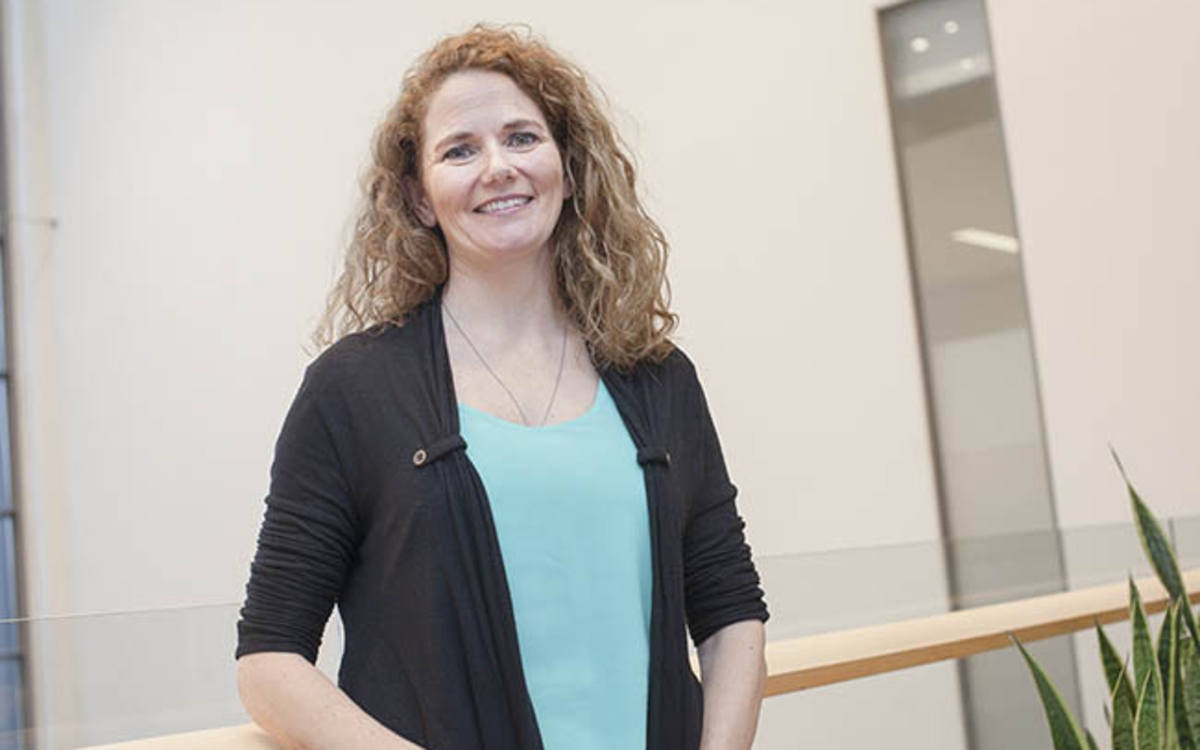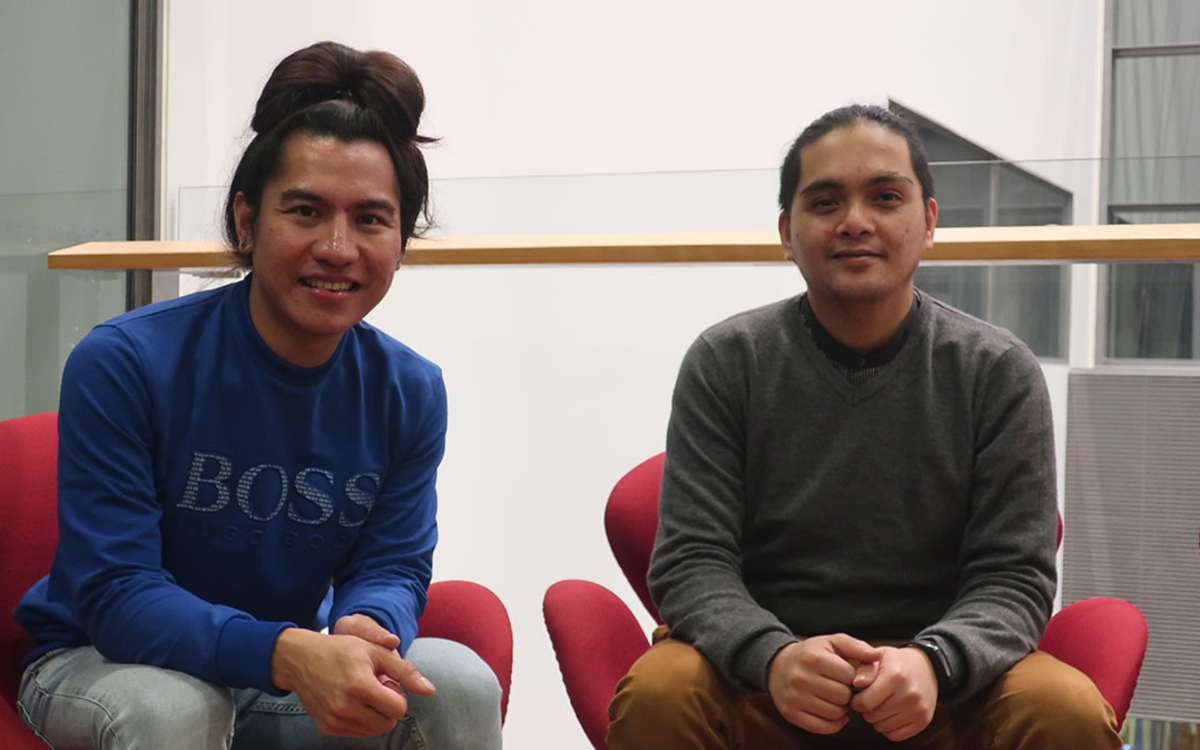Degree programme in Global Health and Crisis Management
This programme focuses on global health and humanity, health and infection prevention and crisis management.
This is a blended learning programme with English as the teaching language. The next application period for this programme will be announced later.
Basic information
- Degree programme: Global Health and Crisis Management
- Degree title: Master of Health Care
- Duration of studies: 90 ECTS, 1,5 - 2,5 years
Bachelor of Health Care or a related degree in university or university of applied sciences in foreign higher education institute and a minimum of two years of relevant work experience after graduation is required.
Laurea experiences: Global Health and Crisis Management student Velumma
Masters’ degree programme in Global Health and Crisis Management focuses on health care and crisis leadership, management, and evidence-based development from the perspectives of global health and humanity, socially sustainable development, health and infection prevention and control as well as communication. You study global health topics gaining expertise in infection prevention and control both in situations in which communicable diseases have spread or are in a risk to spread locally or even globally, and in situations typical for highly technological environments. You will gain master’s level competencies in infection prevention and control. You learn about global protocols of applied epidemiology, and infection prevention, crisis preparedness, management, and leadership by implementing the tools used at the European and global level.
The teaching is largely based on evidence, global and international models, and best practices in addition to expert experiences from the fields. The most important areas of generic competencies include ethical awareness, research and development methods, and communication in a multidisciplinary team, management, development, and leadership.
Global Health studies are based on global needs. You are provided with general research and development competencies to work in developing, low- and middle-income countries. The problems addressed are global but may also be associated with phenomena such as immigration to Finland and the improvement of this process. Together with the Global Health Ethics, the actual programs transforming our world according to the United Nations’ 2030 Agenda for Sustainable Development constitute the value base of the Global Health and Crisis Management degree programme.
Programme content
The degree programme consists of core competence studies, the thesis, and complementary competence studies. Core competence studies and the thesis are compulsory for all students and their scope is 30 + 30 ECTS credits. Scope of the complementary competence studies is 30 ECTS credits and they allow you to deepen and extend your knowledge in crisis management and quality management in infection prevention.
Core competence studies
Core competence studies consist of the following study units:
- Global Health Policies and Models, 5 ECTS
- Global Health Management, 5 ECTS
- Global Health Development, 5 ECTS
- Global Health Promotion, 5 ECTS
- Research Methods in Health Care, 5 ECTS
- Global Health Communication, 5 ECTS
Complementary competence studies
Complementary competence studies give you the possibility to build your own expertise. You can choose your complementary competences studies from the following modules:
Crisis Management (15 ECTS)
Consist of three study units: Crisis management, Crisis leadership and communications and Crisis preparedness and prevention.
Quality Management in Infection Prevention (15 ECTS)
Consists of three study units: Evidence-based global infection prevention, Epidemiology and biostatistics and Health Care evaluation and infection prevention interventions.
See the PDF version of the curriculum.
Master’s thesis
Master’s thesis is included in the studies. Students in Global Health and Crisis Management complete applied research and evidence-based development in their respective fields of expertise. The thesis is completed according to the Learning by Developing (LbD) pedagogical action model within national, international, or multinational development or research projects or missions integrating theoretical studies with health care, infection prevention and control, or crisis management development and management.
To give you a clearer picture of the kind of work that is done in the programme, here are some examples of work that has been done by our students:
Andérsen, Greta. 2025. Women's leadership studies in Health Care - a European perspective.
Kalliomäki, Päivi & Männistö Taru. 2025. Preparedness and awareness among tourists about natural disasters in the Philippines - A Field Study.
Polishchuk, Anna. 2023. Exploring the challenges in the harmonization of clinical evaluation of medical device software across EU member states.
Huttunen, Susanna. 2023. Ethical issues registered nurses experience working in intensive care.
Read the full curriculum (PDF).
Schedule of the studies in autumn 2026 & spring 2027
Orientation day & tutoring
16 Sep at 9-16.30 Orientation day
14 Nov at 13-16.30 tutoring
Global Health Promotion
17 Sep at 9-12
10 Oct at 9-16.30
12 Dec at 9-16.30
Global Health Communication
17 Sep at 13-16.30
9 Oct at 9-12
12 Nov at 13-16.30
13 Nov at 9-12
11 Dec at 9-12
Global Health Policies and Models
18 Sep at 9-12
9 Oct at 13-16.30
12 Nov at 9-12
13 Nov at 13-16.30
11 Dec at 13-16.30
Global Health Development
8 Oct at 9-16.30
14 Nov at 9-12
10 Dec at 9-16.30
Ethical Leadership and Management Symposium
20 Oct at 9-16.30
21 Oct at 9-16.30
22 Oct at 9-16.30
Research Methods in Health Care
14 Jan at 9-12
16 Jan at 9-16.30
18 Mar at 9-12
Master's Thesis
14 Jan at 13-16.30
Studying in the Global Health and Crisis Management programme
Studies in this master’s degree programme are planned through blended learning, which means that they can be completed alongside a full-time job. You will have a varying number of contact teaching days in a month and otherwise you can study online. Studies include independent work as well as group work, so managing your schedule is important.
Extent of the study programme is 90 ECTS credits, which is equivalent of 1.5 years of studies. However, depending on your own study schedule and flexibility, you can complete the degree in a shorter time as well.
Students in the Global Health and Crisis Management degree programme have previous bachelor’s or master’s degree and at the minimum two years of work experience in a relevant field in the Health Care and Social Services. They have a diverse cultural and geographical background which offers a global perspective in discussions and interaction within the programme and supports the international approach to studies.
At Laurea we are proud of our pedagogical model, Learning by Developing (LbD), in which you collaborate on authentic projects together with experts from different fields all-around the world. Visitors from Laurea’s partner universities visit in study units and projects. We organize and international symposia on themes such as Ethical Leadership and Management and Global Health. You may focus on development of practical areas in your studies but on their best the studies will be carried out in close connection to the students’ development projects.
After graduation – employment and further studies
During your studies in the Global Health and Crisis Management Master’s degree programme, new career doors will open. You will have the opportunity to work as an expert within the fields of global health, infection prevention and control, health service evaluation, emergency, and crisis management. There are potential working roles research and development projects, in missions of public, private, and non-profit sector organizations, and in business life as entrepreneurs and consultants.
For example, the graduates of this programme are working as full- time workers or delegates of their background organization, at reception centres, among immigrants, at the non-governmental global, international, and Finnish organizations.
As a graduate of Global Health and Crisis Management Master’s degree programme, you have the possibility to continue your studies in doctoral or master’s studies in a scientific university or qualify as a vocational or higher education teacher.
Tuition fees and scholarships
Non-EU/EEA area students in degree programmes taught in English are charged tuition fees.
Tuition fee: €11 000/ academic year for non EU/EEA students.
Read more about the tuition fees and scholarships >>
Application requirements
Applicants to this Master's programme must have completed one of the degrees mentioned below:
Bachelor of Health Care, fysioterapeutti (AMK)
Bachelor of Health Care, sairaanhoitaja (AMK)
Bachelor of Social Services, sosionomi (AMK)
Bachelor of Health Care, terveydenhoitaja (AMK)
or other relevant Bachelor's/Masters's degree in the field of human Health Care and Social Services
Laurea may, at its discretion, also consider other relevant degrees completed at University or University of Applied Sciences or a Finnish former higher vocational level qualification (opistoasteen tutkinto).In addition applicants must have at least 24 months of subsequent work experience in the field being applied to or the field of the previous higher education degree.
Read more about the requirements for applying to Master's degree programmes at the Selection criteria and Required certificates and Entrance exam pages.
Laurea rewards excellence
Students who complete their Bachelor's degree within the target time and with at least good grades will be granted separate study rights for Master's degree studies.
More information
If you need more information about the program, you can contact us as follows:
Laurea Admission Services (admissions@laurea.fi)
Principal lecturer of the program Teija-Kaisa Aholaakko
Would you like to lean more about our degree programmes?
In the Laurea newsletter, you’ll receive information about Laurea’s bachelor’s and master’s degree programmes as well as the application process. We send the newsletter whenever the application period is approaching.
More information:
- Teija-Kaisa Aholaakko
- Principal Lecturer
- Teija-Kaisa.Aholaakko@laurea.fi
- Tel (09) 8868 7348
- Jani Merikivi
- Jani.Merikivi@laurea.fi
- Tel +358504629759
Not open for application
Will be updated later
How to apply
Apply for our degree programmes in English
Read more here about the application process.
Read the instructions


